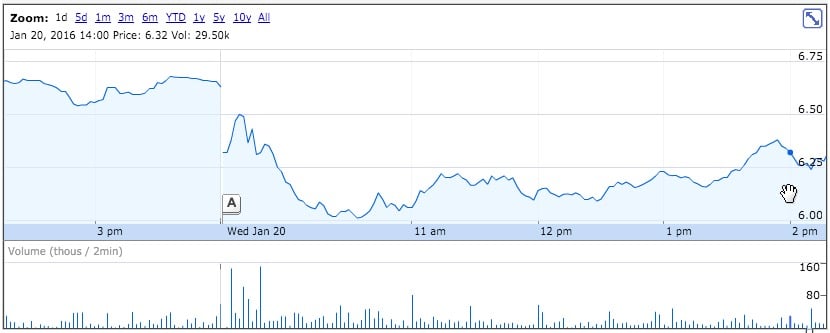Yesterday the stock price of 3D Systems hit an all time low of USD$6.01. Is it time to worry?
The company has been undergoing big changes since the long drop in stock prices began a year ago. Since then they’ve introduced new products, but also dropped their entire consumer 3D printing line – and their longtime CEO. There’s even been a class-action lawsuit filed against the company regarding the precipitous drop in stock value.
Now we see the stock hit an all time low, at least in intra-day trading. The stock actually closed a bit higher at the end of that day, at USD$6.42. However, the message from investors seems clear: they are not happy and see better investment opportunities elsewhere.
But what does this really mean? So long as the company remains profitable, it isn’t critical. The company is still operating, employs hundreds of people and holds title to many different 3D printing processes. However, in their most recent quarterly report, the company actually took a loss of approximately USD$32M on revenue of USD$151M. It’s probable the final quarter of 2015 did not cover this deficit.
With the world economy slowing for various reasons, the amount of the more-profitable industrial 3D printers to be sold may slow, leading investors to their conclusions.
It’s now not surprising to understand why 3D Systems axed their consumer division, as they are clearly trying to consolidate their operations around markets and products that are profitable. It’s even possible they may eliminate additional segments before they recover.
Another possibility at this stage is that the low stock price may attract a buyer, looking to acquire 3D printing expertise, patents and brands. Consider that the total market value of 3D Systems at the beginning of 2014 was many billions of USD$. Today the market capitalization is a “mere” USD$713M. Buying them could be a deal – at least for some larger players.
But such a purchase would only take place if the buyer felt they had the expertise to figure out how to make the company profitable again. That’s possible, but we’ll have to watch and see if any company steps forward.


